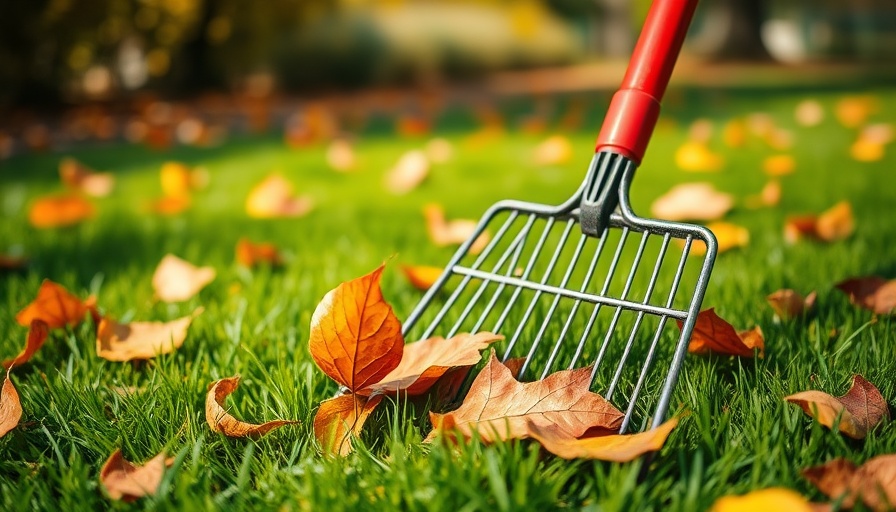
Hate Raking Leaves? Discover the Benefits of Embracing Nature
As the fall season paints our landscapes in vibrant hues, the idea of raking leaves can feel as obligatory as Thanksgiving turkey. However, many homeowners in the MidSouth are learning that forgoing this annual chore can have surprising benefits for both their lawns and well-being. Research suggests that leaving leaves on the ground not only helps maintain a healthy lawn but also supports local wildlife and reduces our environmental footprint. So, why are we still raking?
Reimagining the American Lawn
Historically, the quest for a 'perfect' lawn took hold in the suburban mid-20th century, spurred by the rise of turfgrass and an idealized vision of what outdoor spaces should look like. However, this vision has begun to shift. Experts argue that a healthy lawn does not necessitate a pristine appearance devoid of leaves. In fact, many species of insects and birds rely on leaf litter for shelter and food during colder months.
Protecting Your Body and the Environment
Raking leaves might seem harmless, but the physical strain it places on the body can lead to injury, especially for those with pre-existing health conditions. Back pains and cardiovascular problems can arise from repetitive motions and heavy lifting. Beyond personal health, consider the environmental impact: nearly 10 million tons of yard waste were dumped in landfills in 2018 alone, contributing to pollution and waste management issues.
Natural Benefits of Leaving Leaves
Leaving leaves can be a boon to your garden! As leaves decompose, they enrich the soil with vital nutrients and organic matter, creating a healthier ecosystem beneath your feet. This organic layer can improve soil structure, retain moisture, and foster an environment conducive to rich biodiversity. Imagine walking through your yard, not only appreciating its beauty but knowing that you play an integral role in nurturing local wildlife and plants.
What to Do with Excess Leaves
While avoiding raking often brings numerous benefits, it's important to assess your yard's situation. If thick layers of leaves threaten to suffocate your grass, consider shredding them or composting to maintain the balance. A light layer can be left to provide nutrients without harming the grass beneath.
Creating Awareness in Your Community
As homeowners embrace this change, there’s potential for community-wide awareness. Hosting informational events about the benefits of leaving leaves can empower others to rethink their landscaping practices. Share your newfound knowledge with neighbors, and promote a dialogue about sustainable living that solidifies your community’s commitment to eco-friendliness.
Local Health and Wellness Benefits
While it may seem trivial, the act of working in your yard can be a form of therapy. Instead of stressing over leaf piles, take time to appreciate the outdoors. Gardening has shown to reduce anxiety, improve mood, and encourage physical activity. Swinging by the local garden center for plants that naturally thrive amid fallen leaves or learning about composting can enhance personal well-being while beautifying your surroundings.
What Homeowners Can Do
Consider connecting with local environmental organizations to access more information about sustainable lawn care practices. Discuss with fellow homeowners and organically build a community motivated by eco-conscious choices that benefit both nature and health. Whether you’re sharing resources or hosting community workshops, your collective effort will bolster the movement towards sustainable living.
As we embrace nature’s cycles, putting down the rake could transform our yards into thriving ecosystems. Join the movement, and help create lush green spaces that welcome wildlife and support healthy living.
Want to learn more about sustainable landscaping strategies and how you can help build a healthy habitat in your own backyard? Connect with local gardening enthusiasts and discover beneficial approaches! Together, let’s foster beautiful, vibrant environments while nurturing our health.
 Add Row
Add Row  Add
Add 



Write A Comment